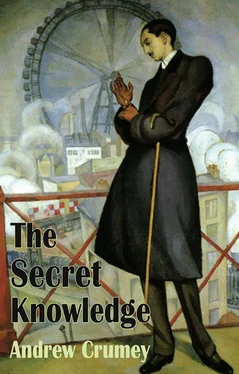“Walter Benjamin’s intention was to join me and my colleagues in America. An imaginative novelist might speculate on the ensuing biographical events, but who could envisage the philosophical insights that would have resulted, except for a philosopher? There we see the limitation of fiction in relation to philosophy, for fiction deals with the particular, the accidental, the psychologically arresting; whereas philosophy, while traditionally it encompassed only the most abstract and conceptual, nevertheless, in Benjamin’s view and in my own, ought also to account for the particular, the unique, the never to be repeated or replicated. Then philosophy would finally have conquered fiction, and for the latter there would be no need. Why, we may ask, did Walter Benjamin, that most exquisite of prose writers and most discerning of critics, never write a novel, nor attempt one? It was because of this realisation he had, that a fully formed materialist conception of history would render fiction obsolete, like the magic-lantern shows he wrote about, which have been replaced by the distractions of cinema. Philosophy is truth, not fiction. And the truth is that Walter was a melancholy man as well as a genius. The truth is that even if the Gestapo had not pursued him, he would probably have killed himself in the end, if not in Spain then in some hotel room in New York, upset over yet another unrequited love affair. Was it his destiny? No, it was his predisposition. So forgive me, ladies and gentlemen, if I express my displeasure at the ease with which this man whom I knew has become an intellectual commodity.”
An activist gets to his feet and this time his words are clearly heard. “You deny freedom and are a fascist.”
Adorno answers calmly. “I deny the legitimacy of authoritarianism masquerading as free speech.”
But there are more shouts, drowning him out, and then, as if a pre-rehearsed moment in the proceedings has finally been reached, three young women bring out a banner made of pieces of paper or card taped together, painted with bright green letters that say something not entirely legible about workers of the world. The girls shuffle out of their row in the audience and bring the banner to the front, accidentally tearing it on the way, then when they reach the stage, completely unopposed, they discard the remains of the banner and two of them sing while the third begins removing her clothes. At this point the celebration of Walter Benjamin’s seventy-fifth birthday reaches its end.
Adorno is in his office at the university next day when he gets a phone call. The woman says her name but he doesn’t catch it; he assumes it’s one of the protesters and considers putting the receiver down; but no, she isn’t phoning to apologise or launch a further attack, she had nothing to do with the demonstration; in fact, she says with an embarrassed laugh when he questions her, she’s an elderly and, she likes to think, perfectly respectable lady. She simply wants to meet and discuss with him a matter concerning Walter Benjamin. This afternoon, perhaps?
She proposes a park; the weather recommends it, though there is also an air of mystery to the assignation. Is the conversation to be of a kind she would prefer no one to overhear? Parks, in Adorno’s mind, are a place for clandestine lovers wishing to proclaim an illusory freedom. The woman says she’s elderly but that could still signify fewer years than his own. Her voice is beautiful.
He arrives early and waits on a bench. Some sort of bird is hopping on the grass, he doesn’t know the name. Sunlight perforates the trees, momentarily dazzles him, connects him with primal warmth. He remembers hearing it claimed that the sun emits radio waves.
Then he sees her, approaching slowly. Yes, he thinks, it’s surely her, incongruous by her dignity, a moving statue, relic of an earlier time, perhaps a decade older than himself, yet straight-backed and without a walking stick. And yes, she’s beautiful. He rises to greet her; she extends her slender hand.
“I am Yvette Carreau.”
He finds himself making a bow, crooking his arm for her to hold. An old, extinguished world has come alive.
“My late husband was a collector,” she explains as they begin walking, for she says she would prefer it, and he hears a trace of a French accent that hadn’t been apparent on the telephone.
“A collector of what?”
“Miscellaneous objects and distractions. Also something of a gambler, willing to part with large amounts of money for items that might prove worthless. And a hunter, determined to catch the quarry he sought.” She stops and turns to look at Adorno. “He met your friend Walter Benjamin on the night before he died.”
Now Teddie understands. This woman has no interest in him, only in the past he represents, the connection with history. She wants to tell him an anecdote he can put in a book or lecture. “Were Benjamin and your late husband intimately acquainted?”
“They met on only that single occasion. Some people say once is as good as never, but I’ve always felt that a single meeting can mean more than a thousand.”
“An interesting observation. So your husband was in Portbou?”
“And I was with him, at the Hotel de Francia. Louis had the visas and Benjamin had what Louis wanted in return.”
“My God.”
“You see now why I wanted to meet.”
“You could have told me this long ago.”
“Not while Louis was alive. My late husband insisted there was a plot against my life, a secret cabal, from which he alone could protect me.” They’re reaching a boating pond; now Yvette would like to sit and watch the glittering water broken only by paddling ducks and the empty boats moored and rocking at the edge. They position themselves at a respectful distance from one another on the bench she selects. “Louis was a good and loyal husband. But he never believed that I really loved him, I see that now.”
Adorno gives a cough of embarrassment. “What went wrong with the visas? Did Benjamin not have enough money for them?”
Yvette shakes her head. “All I know is what Louis told me, which is that Benjamin had somehow, quite unwittingly, acquired a book containing crucial evidence of the conspiracy. Louis wanted it in exchange for the visas he’d procured at great risk. And so I sat in the restaurant of the hotel while Louis went upstairs to see Benjamin, who had been arrested with some other Jews. A gramophone played nearby, it was a balmy evening and in different circumstances it could all have been romantic and pleasurable, yet I was tired, depressed, fearful. And when Louis came back he told me that he had the book, its former owner had the travel documents. We returned to our own hotel and next day back across the border to France. It was only much later that I learned the poor refugee had been a scholar of some importance, and that instead of trying to use the visas he had decided to take his own life.”
Adorno is sceptical. “What was the book?”
She smiles. “Long ago I was engaged to a musician named Pierre Klauer. Fate stole him from me, but I was left with the key to his desk, where he said his latest work was to be found. It was Louis who retrieved it, a piano score ominously titled The Secret Knowledge . And how I treasured that relic of my sweetheart. So many times I wept over it, clutching it until the pages became bent and faded, but determined that it should live forever. Louis’ acquisition of the work, right from under the noses of Pierre’s parents, was the first indication to me, both of his ingenuity, and of the threat we jointly faced. Pierre’s death was the work of an underground sect; I risked being their next victim. The music, Louis explained, was a coded message, the protocols of the organisation, but it lacked one vital thing. Pierre gave me the key to his desk, but not the key to the code. This was what had somehow fallen into the hands of Walter Benjamin, a book the society was determined to recover, at whatever cost.”
Читать дальше











